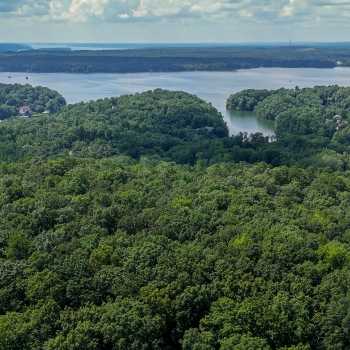Why Scott County Tennessee Land Attracts Buyers
Scott County sits at the edge of Tennessee's highland rim, where old mining lands meet Appalachian farming traditions. Buyers looking for land here can find affordable acreage with timber potential, hunting rights, and space for livestock. Smaller farms dominate the area, often passed down through generations. This makes Scott County a solid fit for those seeking legacy properties or rural homesteads.
Big South Fork National River and Recreation Area draws visitors and seasonal land buyers interested in hiking, horseback riding, and kayaking. With low property taxes and a cost of living below the national average, it's appealing for both retirees and younger families. ATV trails, local festivals, and community events add to the sense of place. Whether you're looking to run cattle, grow your own food, or just have breathing room away from the city, this part of Tennessee makes a compelling case.
Natural Features that Make Scott County Land Desirable
Scott County's land includes deep forest hollows, sandstone ridges, limestone streams, and fertile creek-bottom fields. Big South Fork cuts through the heart of the county, creating dramatic bluffs, arches, and coves. The variety of ecosystems supports everything from moss-covered rock outcrops to wildflower meadows and pine-covered slopes. This mix of terrain attracts land buyers looking for scenic views, privacy, and outdoor recreation options.
Big South Fork Gorge
This rugged river gorge features steep cliffs, rock shelters, and secluded fishing spots. It's a defining landscape element for Scott County, drawing hikers, paddlers, and nature lovers from across the region.
Plateau Forests
Hardwood forests with oak, hickory, and maple dominate the uplands. These forests support both wildlife and timber production, offering seasonal color changes and long-term value.
Clear Fork River
Known for its clear water and smooth boulders, the Clear Fork flows through much of the county. It's popular for fly fishing, swimming holes, and scenic frontage on private land tracts.
Timber, Cattle, and Off-Grid Land in Scott County
Land in Scott County supports a mix of uses—most notably small-scale cattle farms, timber investment tracts, and off-grid homesteads. Many of the area's family farms run cow-calf operations and raise hay. Former coal lease tracts have returned to private ownership, with timber regrowth underway. There’s also growing interest in off-grid living, with buyers seeking privacy, minimal zoning, and utility-free infrastructure. The landscape supports all three investment styles across different elevations and access types.
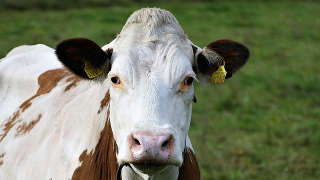
Cattle and Pasture Land
Scott County has strong roots in cattle farming. Most herds are cow-calf operations that use rotational grazing on hill pastures. Fields along Brimstone Road and Paint Rock Creek offer gentle slopes and reliable forage. With average farm sizes under 100 acres, it's a good fit for buyers starting a manageable livestock program. Old barns and fencing infrastructure often come with the land, adding value for hands-on farmers.
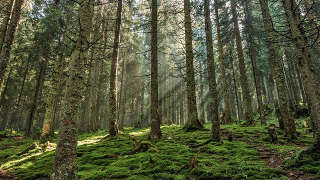
Timber Tracts
Timberland in Scott County includes upland oak stands, regenerating pine patches, and mixed hardwood draws. Many parcels were once part of large paper or coal leases and now offer income through selective harvesting or replanting. Access roads and skid trails remain on some tracts, making management easier. These properties are attractive for long-term holding and can be enrolled in Tennessee's Greenbelt tax program for added savings.
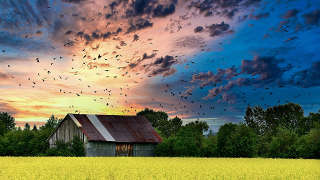
Off-Grid Homesteads
The county's lenient zoning and available remote tracts attract buyers interested in living off-grid. Rainwater catchment, solar arrays, wood heat, and composting systems are common on these homesteads. Properties off Highway 27 and near No Business Creek provide privacy with creek access. It's a lifestyle that favors independence, and Scott County's land prices make it more achievable than in many parts of the state.
Scott County Wildlife, Fishing, and Hunting Opportunities
Scott County offers a range of habitat types, from lowland creeks to hardwood ridges and upland glades. Hunters and naturalists will find everything from gobblers strutting through cutovers to bobcats crossing overgrown trails. The county’s connection to Big South Fork adds protected wildlife corridors and supports game populations. Fishing is just as strong, with river systems home to smallmouth, rock bass, and native sunfish. Whether you hunt, fish, or just want to observe, the county offers year-round wildlife encounters.
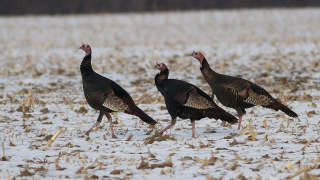
Turkey
Eastern wild turkey populations are healthy and widespread. Spring gobbler season draws local hunters to pasture edges and hardwood bottoms where birds regularly roost.
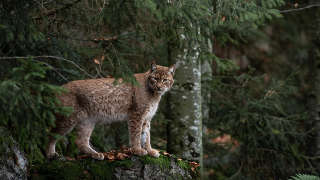
Bobcat
Bobcats are elusive but regularly spotted on trail cams, especially in thickets and pine regrowth areas. They play a key role in the predator ecosystem of the region.
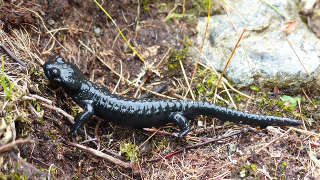
Hellbender
These giant aquatic salamanders live in cold, fast-moving streams like the Clear Fork. Their presence signals high water quality and protected riparian habitat.
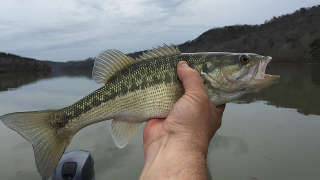
Smallmouth Bass
Anglers target smallmouth in the Big South Fork and New River. These fish hit hard and offer consistent action in spring, summer, and early fall.
Community, Festivals, and Self-Sufficient Living in Scott County
Scott County’s appeal goes beyond the land itself. The local culture leans self-reliant, with many residents raising food, preserving old skills, and fixing what breaks. Events like the Haunting of the Hollow and Wing Fling aren’t just celebrations—they’re community touchstones that bring neighbors together. There’s a lived-in, hands-on way of life here that doesn’t revolve around big cities or strip malls. For buyers looking to plant roots where people still barter, build, and back one another up, Scott County delivers the real thing.
Land for Sale in Nearby East Tennessee Counties
Interested buyers exploring Scott County often look to surrounding areas for similar terrain and investment value. These nearby counties offer timberland, farmland, and hunting tracts with comparable pricing and access to services. Whether you're after more acreage, better road frontage, or a different school district, it helps to keep your search wide.
Fentress County
Fentress offers pasture and horse-ready land, with open terrain near Jamestown and hidden valleys closer to Big South Fork access.
Morgan County
Morgan County has large timber tracts, low taxes, and direct access to trails and backroads. Ideal for long-term holds and outdoor buyers.
Campbell County
Campbell County mixes lakefront living near Norris Lake with wooded acreage and homesites in more remote corners of the county.

